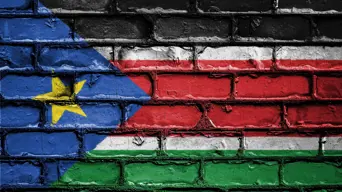S.Sudan opposition army condemns new attacks near capital
The peace deal ended a five-year civil war that killed around 400,000 people, but South Sudan, which declared independence in 2011, has remained plagued by poverty and insecurity.

Picture: David Peterson/Pixabay
JUBA, SOUTH SUDAN - The military wing of South Sudan's opposition said Wednesday that two training bases on the outskirts of the capital Juba were attacked by forces allied to the president, stoking fears of renewed conflict.
The attacks are the latest in a series of clashes in the world's youngest nation, where fighting between forces allied to President Salva Kiir and First Vice President Riek Machar threaten a fragile 2018 power-sharing agreement.
The peace deal ended a five-year civil war that killed around 400,000 people, but South Sudan, which declared independence in 2011, has remained plagued by poverty and insecurity.
Machar's military wing, the Sudan People's Liberation Army In Opposition (SPLA-IO), said two of its training camps on the outskirts of Juba were attacked by the Kiir-aligned army on Tuesday and early Wednesday.
SPLA-IO spokesman Lam Paul Gabriel, in a post on Facebook, condemned the attacks as "terrorism" and urged the international community to act.
"The SPLA-IO reserves the right to defend itself against any attack against its positions," he said.
Two AFP correspondents in Juba heard detonations in the early hours of Wednesday morning.
The training centres were established to prepare opposition forces for integration into the unified army, a key provision of the 2018 peace agreement aimed at uniting federal and opposition troops.
It follows claims by the SPLA-IO that another of its military bases was attacked on Monday.
None of the incidents have been confirmed by the Kiir-aligned army, the South Sudan People's Defence Forces (SSPDF).
Juba was calm later Wednesday, with people moving around freely and shops open.
But many are deeply concerned by the recent clashes and political tensions.
"I am so worried about the situation. I feel like we are going back to war while we still need peace," Lilian Sukeji told AFP.
"Our leaders need to embrace dialogue rather than guns," she said.
'RED WARNING'
The incidents follow weeks of clashes in the northeastern Nasir County between federal forces loyal to the president and the so-called White Army, a militia which the government accuses of collaborating with Machar.
"The violence that started in March in Nasir seems to be spreading across a number of states in South Sudan," International Crisis Group's South Sudan senior analyst Daniel Akech warned.
He said the refusal of Kiir and Machar to engage in dialogue - despite pressure from the international community - was a "red warning".
If wider conflict did break out, he said, "it will be a very decentralised kind of violence, which would be very difficult to stop" as it could quickly escape the control of the two leaders.
Analysts say an ageing Kiir, 73, has been seeking to ensure his succession and sideline Machar politically for months through cabinet reshuffles.
More than 20 of Machar's political and military allies in the unity government and army have also been arrested since February, many held incommunicado.
International observers have expressed increasing concerns.
Both Norway and Germany have closed their embassies in Juba, with the United Nations warning the country was "teetering on the edge of a relapse into civil war".